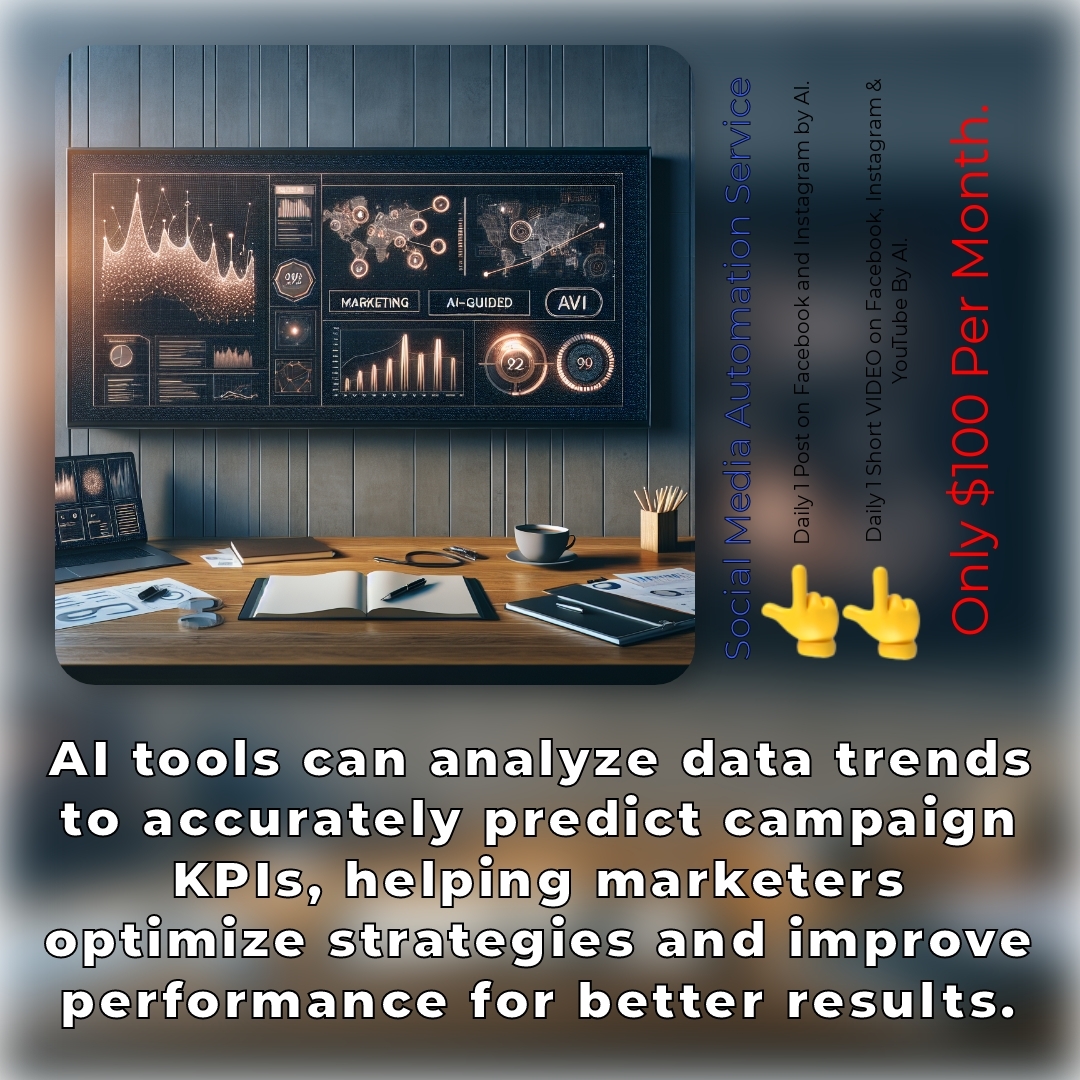Predicting Campaign KPIs is essential for gauging campaign performance in today’s competitive marketing landscape. Understanding how AI Tools can enhance marketing analytics allows businesses to make data-driven decisions. By leveraging AI for KPI prediction, marketers can optimize strategies and ultimately achieve better results in their campaigns.
“AI tools illuminate paths to predict and achieve campaign success.”

Predicting Campaign KPIs is crucial for any marketing strategy today. Understanding how your campaigns are performing by looking at Key Performance Indicators (KPIs) helps you get a clearer picture of what works and what doesn’t. Now, let’s dive into what KPIs actually are, and why they are so important.
Understanding Key Performance Indicators (KPIs)
Key Performance Indicators, or KPIs, are metrics that help you evaluate the success of a campaign. They give you quantifiable measures to gauge how well your marketing strategies are performing. Typical examples of KPIs include:
- Conversion Rate
- Customer Acquisition Cost
- Return on Investment (ROI)
- Website Traffic
These KPIs are vital because they serve as benchmarks that guide your decision-making. If you notice that your conversion rate is lower than expected, for example, you might want to adjust your campaign to better target your audience or enhance your messaging.
The Role of AI Tools in Predicting Campaign KPIs
AI Tools are transforming how we analyze and predict campaign performance. With many options available, these tools utilize algorithms that can sift through vast amounts of data quickly and efficiently. They connect with predictive analytics to enhance the accuracy of KPI forecasts. By analyzing historical data, AI Tools can predict future trends and performance, which allows you to fine-tune your marketing strategies in real time.
How to Predict Campaign KPIs Using AI Tools
Integrating AI Tools into your marketing strategy doesn’t have to be complicated. Here’s a step-by-step guide:
- Identifying key metrics: Start by determining which KPIs are most pertinent to your campaign goals.
- Data collection and analysis: Gather data from various sources and analyze it to get insights into previous campaign performances.
- Implementing predictive models: Use AI Tools to build predictive models that simulate different scenarios for your campaigns.
Additionally, don’t forget to continuously test and optimize your campaigns based on the insights gained from these predictions. Tools like machine learning can help you discover patterns and trends that you might have otherwise missed.
Benefits of AI Tools for Marketing Performance
Utilizing AI Tools in your marketing efforts provides a competitive edge. Here are some benefits:
- Improved accuracy: AI can make more accurate predictions by analyzing large datasets that are hard for humans to process.
- Efficiency: Automating data analysis frees up time for you to focus on strategic planning and creative work.
- Resource allocation: By understanding which segments perform better, you can direct resources more effectively.
For instance, companies in various sectors have successfully utilized AI to predict their KPIs. They have seen enhanced campaign performance, reducing wastage of resources and boosting overall ROI.
Best Practices for Utilizing AI in Campaign Analysis
To get the most out of your AI Tools, follow these best practices:
- Continuous monitoring: Regularly check KPIs and adjust your strategies based on the insights provided by AI Tools.
- Data quality: Ensure that your data is clean and relevant. Garbage data will lead to garbage predictions.
- Keep learning: The landscape of AI is always evolving, so keep up with the latest trends and technologies.
Also, be aware of potential challenges, like the need for skilled personnel to interpret AI-driven data, and the importance of ensuring that your AI tools comply with data privacy regulations.
Conclusion
In today’s fast-paced marketing environment, predicting campaign KPIs with the help of AI Tools is not just beneficial, but essential. The future of marketing analytics is bright as AI continues to evolve, helping marketers make informed, data-driven decisions. By adopting these tools, you’re not just optimizing your campaigns; you’re setting the stage for future successes.
Don’t wait! Start experimenting with AI Tools today to improve your KPI predictions and enhance your campaign performance.
What are Key Performance Indicators (KPIs)?
Key Performance Indicators, or KPIs, are metrics that help you evaluate the success of your marketing campaigns. They provide concrete numbers to understand how well your strategies are working.
Why are KPIs important for marketing campaigns?
KPIs are important because they serve as benchmarks for your campaigns. They allow you to identify what’s working and what isn’t, enabling you to make informed decisions to enhance performance.
What are some common examples of KPIs?
- Conversion Rate
- Customer Acquisition Cost
- Return on Investment (ROI)
- Website Traffic
How can AI tools help with predicting Campaign KPIs?
AI tools analyze vast amounts of data quickly and use algorithms to make accurate KPI predictions. They can identify trends based on historical data, allowing marketers to fine-tune their strategies in real time.
What are the steps to predict Campaign KPIs using AI tools?
- Identifying key metrics: Determine which KPIs are relevant to your campaign goals.
- Data collection and analysis: Gather and analyze data from various sources.
- Implementing predictive models: Use AI tools to create models that simulate different campaign scenarios.
What are the benefits of using AI tools in marketing?
- Improved accuracy: AI can analyze large datasets for more reliable predictions.
- Efficiency: Automating data analysis saves time for strategic planning.
- Resource allocation: Helps you direct your resources more effectively based on performance insights.
What are some best practices for using AI in campaign analysis?
- Continuous monitoring: Regularly check and optimize your KPIs.
- Data quality: Ensure your data is accurate and relevant for better predictions.
- Keep learning: Stay updated on the latest trends in AI to enhance your strategies.
What challenges might I face when using AI tools?
Some challenges include the need for skilled personnel to interpret data and ensuring that the AI tools are compliant with data privacy regulations.









